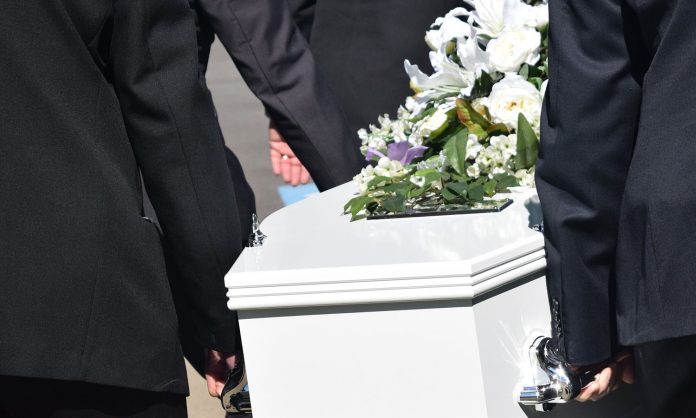
In a post on Killzone, Garry Rodgers shares thirteen strange superstitions about death that he learned as an apprentice coroner. “One segment in the training was understanding various cultural practices and traditions about death,” he says. “This was valuable information because a difficult part of a coroner’s job is interacting with the deceased’s family, and those relatives can come from a diverse ethnicity with some pretty peculiar beliefs.”
Most of us know the practice of putting coins on the eyes of the dead, to pay for their crossing and, more practically, to keep their eyes shut. And horror and mystery stories are replete with examples of birds as harbingers of death. Here are a few other traditions and superstitions. You can read the rest on Killzone:
- Burying the Dead Facing East. Most cemeteries are situated on an east-west grid, with headstones to the west of the feet. “This comes from the belief that the dead should be able to see the new world rising in the east, as with the sun,” Rodgers says. “It’s also the primary reason that people are buried on their backs and not bundled in the fetal position like before they were born.”
- Carrying a Corpse Feet First. “The practice dates from Victorian times when it was thought if the corpse went out headfirst, it’d be able to ‘look back’ and beckon those standing behind to follow,” Rodgers says.
- Covering the Mirrors. Covering mirrors prevents a soul from being bounced back into its body when it attempts to go to the afterlife. It can also be considered a sign of respect, as mourners eschew their own appearance in favor of reflecting on the departed.
- Stopping the Clock. Stopping a clock at the moment of death signals that time has ended for the dead. Clocks would not be restarted until after the burial, unless it was the head of the household who died. In that case, that particular clock would not be started again.
- Placing Flowers on the Grave. While now a sign of respect and affection, people used to believe that a barren grave was a sign the deceased had gone to hell. If wildflowers grew naturally, they believed the deceased had gone to Heaven. Leaving flowers of your own became a way to cheat the decision maker or at least fool the living.
- Viewing a Funeral Procession. “There’re lots of superstitious beliefs around funeral processions,” Rodgers says. “It’s said if a procession stops along the way, another person will soon die and the corpse must never pass over the same section of road twice,” he writes. “Counting cars in a procession is dangerous because it’s like counting the days till your own death. You must never see your reflection in a hearse window as that marks you as a goner.”











